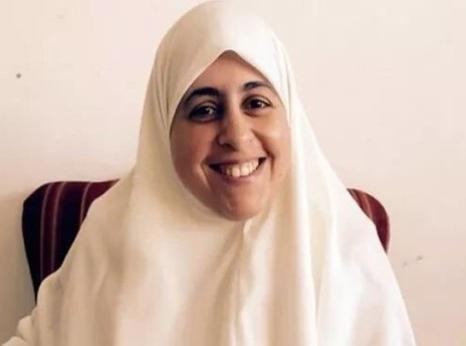Egypt: Unjustly Jailed Couple Held Incommunicado

On 1 November 2018, Aisha el-Shater and her husband Mohamed Abo Horeira were arrested from their home in Nasr City, Cairo. Amnesty International learned that Aisha el-Shater was forcibly disappeared for 20 days, during which period she was held at the headquarters of the National Security Agency (NSA) in the Abbasiya neighbourhood of Cairo and subjected to beatings and electric shocks. On 21 November 2018, she appeared before the Supreme State Security Prosecution (SSSP), where prosecutors ordered her pretrial detention pending investigations on terrorism-related accusations. Before her arrest, she spoke out on her account on Facebook about human rights violations in Egypt including enforced disappearances, torture and other ill-treatment. Prior to his arrest, lawyer Mohamed Abo Horeira represented detainees suspected of membership in the Muslim Brotherhood. Following his arrest, he was held in an undisclosed location for nearly four months where he was subjected to threats and was hit on the head while handcuffed and blindfolded.
On 1 November 2018, following the arrests of Aisha el-Shater, Mohamed Abo Horeira and 28 other human rights defenders and lawyers, the Egyptian Coordination for Rights and Freedoms (ECRF), which documented enforced disappearances and the use of the death penalty and provided legal aid to victims, announced the suspension of its human rights work.
Officials at al-Qanater prison for women held Aisha el-Shater in solitary confinement in a small poorly ventilated cell, without a bathroom, from January 2019 to December 2020. Aisha el- Shater has aplastic anemia, a rare and serious condition affecting the blood, which increases the risk of infections and uncontrolled bleeding. Despite this, the authorities have denied her access to adequate and specialized healthcare in an outside hospital. Her health deteriorated in detention, and she was admitted, while handcuffed, to Al-Qasr al-Ainy hospital twice in October 2019, with significant bleeding, and was given a platelet transfusion. During the 15 May 2022 trial hearing, the Emergency Srate Security Court (ESSC) ordered for Aisha el-Shater’s examination by a committee of three doctors to advise on whether she needs treatment outside prison. As she is banned from communicating with the outside world, her family and lawyers have no information on whether the examination had taken place.
On 25 October 2021, President Abdel Fattah Al-Sisi announced that he would not extend the state of emergency, in force since 2017, which allowed for the creation of ESSCs. Article 19 of the law governing the state of emergency stipulates that ongoing trials are to continue even after the state of emergency is no longer in force. Proceedings in front of ESSCs are inherently unfair. Defendants are denied the right to appeal their convictions and sentences to a higher independent tribunal. Only the president retains the power to authorize, quash or commute sentences or to order a retrial. Throughout their investigation and trial proceedings, which began on 11 September 2022, defendants in the “ECRF case” were banned from speaking to their lawyers in private. Several were interrogated by SSSP prosecutors without their lawyers present. The court hearings were held in secret in the Badr Prison Complex. Observers, members of the public and relatives of defendants were banned from the hearings. Lawyers also said they were not permitted to access their clients’ case files during the investigation. They also said that the court relied on eyewitness testimonies by NSA officers, which were accepted without adequate cross-examination, and did not allow all defendants to speak in court.
Aisha el-Shater’s father, Khairat el-Shater, has been imprisoned since July 2013, when the military ousted former president Mohamed Morsi. Since then, the authorities banned the Muslim Brotherhood and rounded-up and prosecuted its leaders and tens of thousands of suspected members and supporters